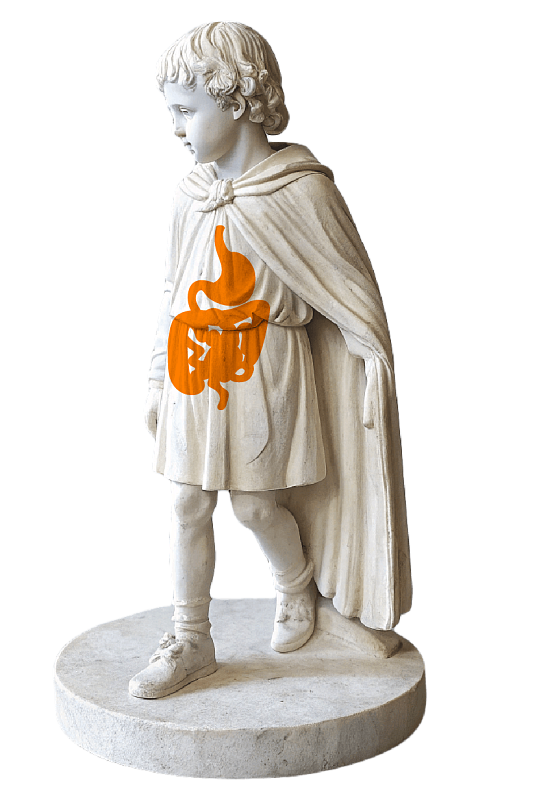Endoscopy (pediatric)
We perform minimally invasive diagnostic and treatment procedures to evaluate the digestive system, respiratory tract and other internal organs in children under 18.

We use gastroscopy, colonoscopy, and bronchoscopy to examine internal organs. Endoscopy helps detect gastritis, ulcers, inflammation of the intestines, polyps, foreign bodies, anatomical anomalies and many other pathologies. It is prescribed in cases of persistent abdominal pain, vomiting, stool disorders, chronic cough, anemia of unclear origin.
Young patients and their parents are carefully prepared: we explain the procedure and what is important before and after the examination. We use advanced equipment with thin endoscopes suitable for children of different ages. This helps us reach an accurate diagnosis without pain or anxiety.
Specialist Activities
Pediatric gastric and colonic mucosal biopsy
Endoscopic biopsy in children is a painless method of obtaining a small sample of tissue during gastroscopy or colonoscopy. The procedure helps identify the causes of chronic diseases, inflammation, digestive disorders, and other pathologies.
Pediatric gastroscopy
Gastroscopy is a safe procedure during which the esophagus, stomach, and initial section of the small intestine are carefully examined using a thin, flexible device called a gastroscope.
Pediatric colonoscopy
Colonoscopy is an examination which involves using special equipment to visually inspect the inner surface of the large intestine and the terminal ileum. The procedure helps identify inflammation, ulcers, polyps, and other changes that may cause abdominal pain, blood in the stool, constipation, or diarrhea. If the child has a polyp, a biopsy will be performed for histological examination. Then, the need for endoscopic removal will be determined.
